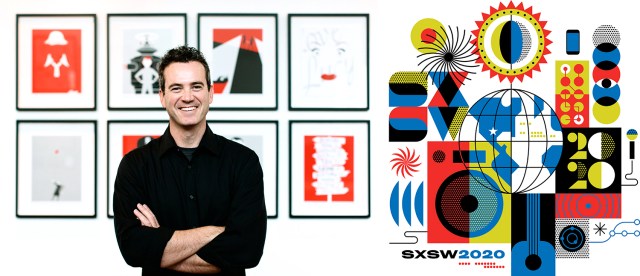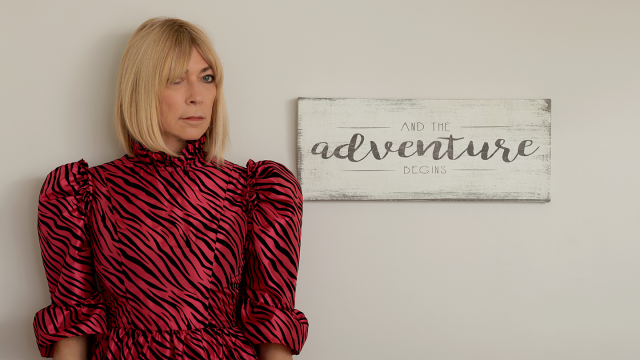Remember the quaint notion of selling out? With each passing year, the fevered quest for exposure has rendered the detached, ultra-cool artist more and more of an outlier. Instead, these days, many artists dive into the mainstream from the very beginning.
Songwriter Savan Kotecha began life as a typical pop music-adoring teenager who was much more into breakdancing than learning to play an instrument.
Never heard of Kotecha? You’ve likely heard some of these: Ariana Grande’s “Problem,” Usher’s “DJ Got Us Fallin’ In Love,” Maroon 5’s “One More Night,” Britney Spears’ “I Wanna Go,” and The Weeknd’s “I Can’t Feel My Face.” They’re all focused, melodic earworms and monster hits, and just a few of the songs written or co-written by Kotecha.
Vermont-born and of Gujarati Indian descent, Kotecha grew up in Virginia until his family transferred to Austin, Texas, just before he was to enter high school: “It was tough at first. I came from an urban environment to a place where my sister and I were two of the very few minorities. But it was there that I found my love for creating music.”
Not that Kotecha was plunging into the city’s fabled music scene: “I was such a pop guy. I never went downtown.”
Instead, at his suburban high school, he found a choir teacher who instilled in him a love of writing music. Despite any real training, it came easily. “I’m not really sure why. I was never a great musician, but I felt I had a knack for writing songs,” he remembers.
"Never heard of Kotecha? You’ve likely heard some of these: Ariana Grande’s 'Problem,' Usher’s 'DJ Got Us Fallin’ In Love,' Maroon 5’s 'One More Night,' Britney Spears’ 'I Wanna Go,' and The Weeknd’s 'I Can’t Feel My Face.'"
This set him on a quixotic career path. “I naively thought it would work out even when family members and teachers told me I was crazy,” he says. Kotecha would take a music business course and record home demo tapes, which he sent out unsolicited. He would also hit surrounding hotels during SXSW, passing out his music to anyone with a badge, until the hotels tossed him out.
Like everyone else trying to break in, Kotecha had star fantasies, which were dashed quickly. “An A&R guy at Jive Records got a hold of one of my crappy sounding demo tapes,” he recalls. “He called and said, ‘Your writing is great, but you’ll never be an artist,’ and I just accepted that. I don’t know why ... it just made sense to me, so I gave up the dream of being the first Indian pop star and focused on developing my craft.”
Years went by, and finally, he was offered a publishing deal with BMG. The company sent Kotecha to Sweden, home of Cheiron Studios and pop wunderkind Max Martin, the Swedish songwriter and producer whose string of #1 hits is only surpassed by Lennon and McCartney.
Though he went willingly, his early years in Sweden were lean ones. Kotecha worked long hours (“I don’t even remember my 20s or early 30s outside of being in a studio”), and slowly started meeting influential people who would later launch his career, including Simon Cowell, and eventually, Martin himself.
His breakthrough came when American Idol winner Carrie Underwood performed his song “Inside Your Heaven.” “I remember watching a stream of the Idol final late at night in a studio, he says. “And I was so broke I was eating beans out of a can. But I knew that things would change after that.” They did, as the song became Kotecha’s first #1 record.
Once he found himself collaborating with Martin, it was eye-opening: “His attention to detail and how he can step out of the song and see what’s missing, his knowing the difference been just ‘good’ and ‘great’ and how to get there.” All of these things made huge impressions on Kotecha.
It was at this point that Kotecha’s philosophy of songwriting began to coalesce: “I learned to slow down. You don’t have to write a song a day. It’s OK to spend time to make things right. Focusing on a few songs and getting them as perfect as you can gave me more hits than writing 300 a year and maybe one worked.”
“Learning from past hits, what’s working in them, how I can apply that to my song,” he continues. “Usually it’s melodic structure. The initial idea could be based on feeling, but it becomes about fine-tuning the melody to make sure it’s as bulletproof as possible.”
Kotecha views melody as a math equation. “Sometimes there are solutions to things, like if the verse, the pre and chorus start before the one, and you feel the chorus doesn’t lift enough. Maybe it’s starting the pre after the one. Or sometimes a melodic phrase needs to be repeated exactly syllable-wise and if you take away or add one you mess up the ‘math’.”
Pop hits often involve many writers, which is no trouble for Kotecha. “It’s OK to ask for help,” he explains. “If you just can’t get a part, there’s no shame in having someone come in that’s got some distance from it to help you find a solution. It should all be about what and who can make the song better. Egos need to be left out of the room.”
These ideas have served Kotecha well over the years. When Simon Cowell persuaded him to step away from his career to work with artists on the American version of the TV series The X Factor, he jumped at the chance: “It was an amazing experience for a number or reasons: it gave me a crash course on artist development. We constantly searched and rearranged classic pop songs for the contestants to sing, so I got to do a lot of pop music ‘research’, and I ended up being a part of the One Direction phenomenon which was life and career changing.”
Kotecha cites his song for One Direction, “What Makes You Beautiful,” as one his proudest moments. He even took to Twitter to complain when a band covered it at the Trump inauguration: "To me the song is about love, joy and acceptance. The fact that it was used to celebrate a man who stands for divisiveness and bigotry breaks my heart."
These days Kotecha makes his home in West Hollywood, and his enthusiasm and remarkable string of successes continues unabated. He has received Grammy nominations and multiple songwriting awards. Virtually every major artist in pop music has performed his songs. Yet even with all this success, the hits still surprise him. “The market is constantly changing and the minute I’m confident I’ve got a grip on it, it changes again.”
Listen below to Savan Kotecha's Featured Session at SXSW 2018.



